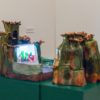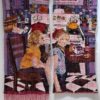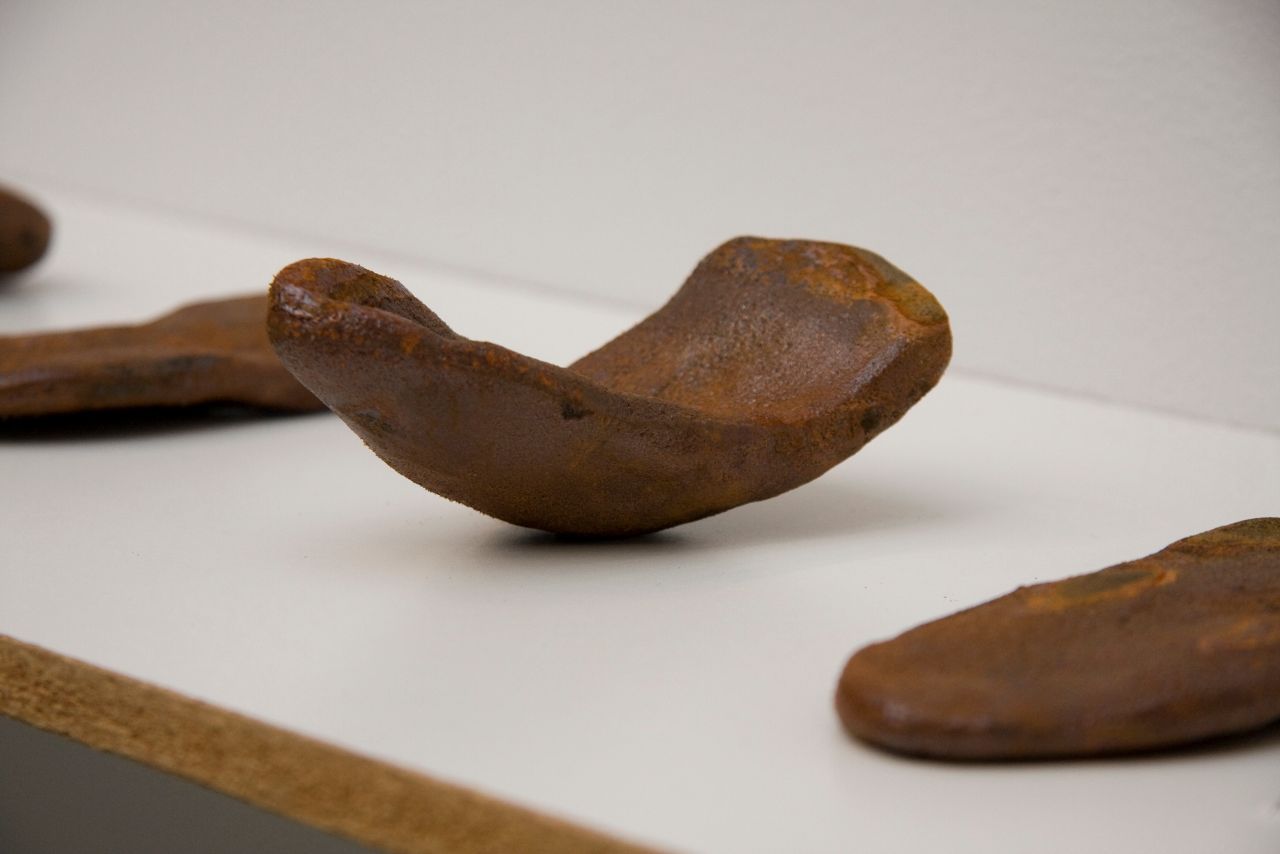ARTIST STATEMENT
“The master’s tools will never dismantle the master’s house.” – Audre Lorde
This work investigates the politics of language from a post-colonial standpoint, specifically how language functions as a tool of colonial power. English is the official language in 54 Commonwealth countries, all of which were former colonies of Britain, in addition to 25 territories which are still under British governance. Each of these 79 states has mother tongues other than English, however, English is the official language in these nations. In the Anglophone world, 3 countries, Britain, America, and Australia, have English as their mother tongue, as well as the official language.
Arguably, this is continuing evidence of colonial and neo-colonial power, but it is also undeniable that English as a language is constantly changing in each of these countries, as it becomes hybridized by the accents, colloquial phrases, patois, and sounds of the local mother tongues and get incorporated into the spoken and written English of that country. Immigrants to the West also similarly change the English language as they appropriate it for their own purposes.
This work is comprised of 79 cast iron tongues that have been allowed to rust. Iron was the metal of the Industrial Revolution and one of the major forces of colonial power. It was used to make domestic objects as well as railroads, ammunition, and monumental buildings. Iron is also a beautiful material at every stage – when it comes out of the cast, and when it rusts.
The rust continually changes the tongues in subtle ways, and makes the work durational. While rust can be seen as deterioration, in the case of iron, it actually makes the metal stronger by creating a hard outer shell that protects the metal. The rust is symbolic of the gradual changes and local adaptations in the English language, and thus about how post-colonial appropriation of the master’s language can undermine and subvert at least one of the master’s tools.
ABOUT THE ARTIST
Pritika is an artist, curator, and writer. Currently Chicago-based, Pritika has an MFA in Studio Art from University of Wisconsin – Madison, as well as an MA in Visual Culture and Gender Studies.
Pritika’s works are featured in prestigious museum and corporate collections, such as the Weismann Museum, American Swedish Institute, the Target Corp, in Minneapolis, MN; in addition to several private collections.
Pritika has shown her works nationally and internationally in group and solo exhibitions in the Weismann Museum in Minneapolis, Queens Museum in New York, the Hunterdon Museum in New Jersey, the Islip Art Museum in Long Island, Visual Arts Center of New Jersey, the DoVA Temporary in University of Chicago, the Brodsky Center in Rutgers University, and the Cambridge Art Gallery in Massachussets.
Pritika is the recipient of a Vilas International Travel Fellowship, an Edith and Sinaiko Frank Fellowship for a Woman in the Arts, a Wisconsin Arts Board grant, and a Minnesota State Arts Board grant. Pritika has taught at Macalester College, and College of Visual Arts, both in St. Paul, Minnesota. Published scholarship about Pritika’s work has come out in peer-reviewed research publications and various exhibition catalogs.
Pritika has presented her studio research projects at various national conferences, such as, the International Arts Symposium at NYU, The Contested Terrains of Globalization at UC-Irvine and the South Asian Conference at UW-Madison. Pritika also participates in panels, and gives lectures and artist talks about her work by invitation.
© Pritika Chowdhry



